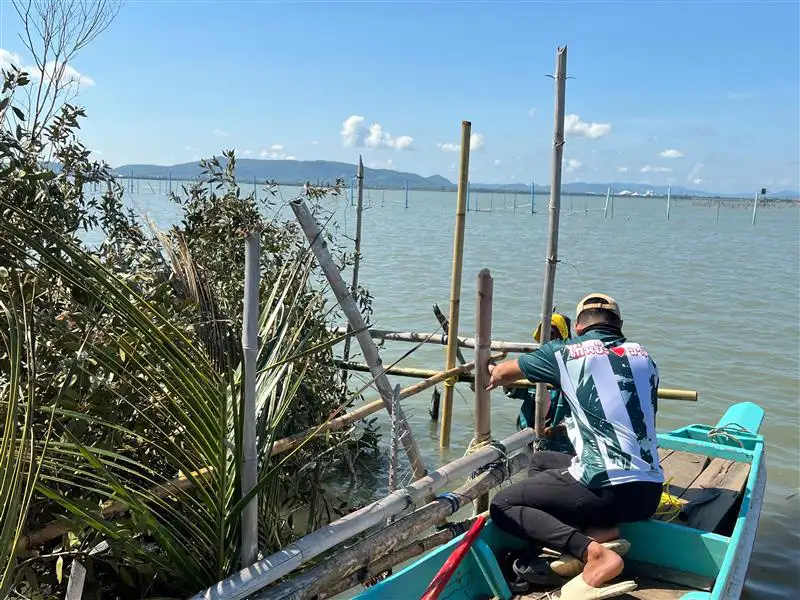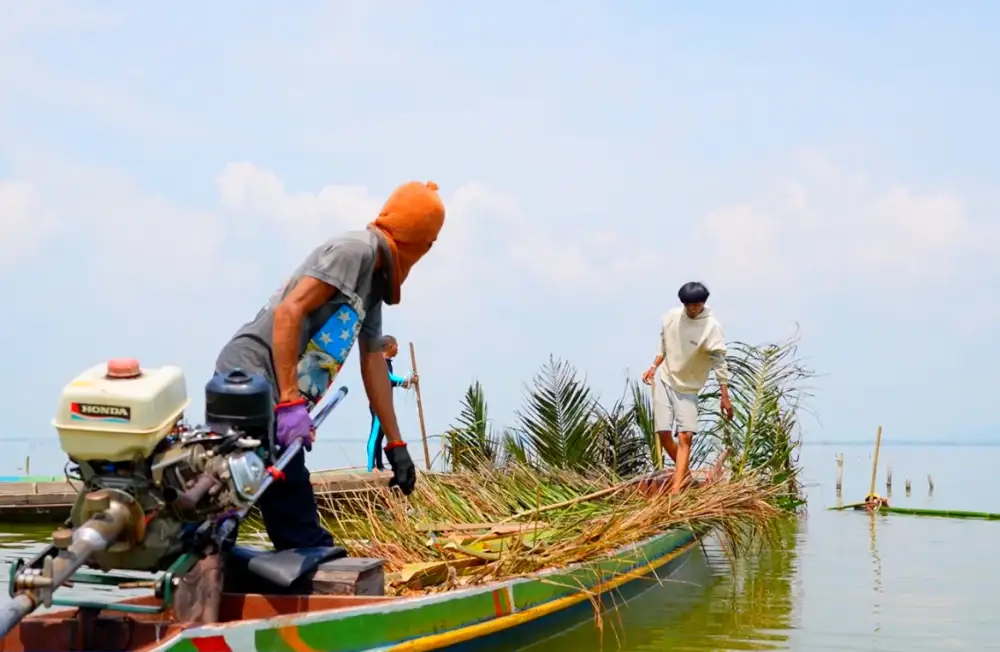
Songkhla, September 30, 2025 - A network of 40 conservation groups, in collaboration with the Songkhla Petroleum Development Support Base of PTTEP, is moving forward with the "Artificial Fish Home" project. The initiative aims to restore marine natural resources and improve the livelihoods of communities living along Songkhla Lake and the Gulf of Thailand's southern coastline.
Mr. Nopporn Nilphong, President of the Community Fisheries Aquatic Animal Bank (Ban Lekai Crab Bank) in Rawa Subdistrict, Ranot District, Songkhla Province, said that the conservation network currently consists of more than 40groups, involving over 1,200 villagers and small-scale fishermen. Together, they are building fish homes in Songkhla Lake and coastal areas of the Gulf of Thailand near their communities, while also setting conservation boundaries. Advisors include the Department of Marine and Coastal Resources (DMCR)., the Department of Fisheries, and the Thai Maritime Enforcement Command Center.

In 2025, the network has already created numerous fish homes and released more than 7 billion baby blue crabs and over 14 million giant freshwater prawns back into nature. Conservation zones covering more than 27 square kilometers have been established across 9 districts in 2 provinces: Hua Sai, Ranot, Krasae Sin, Sathing Phra, Singhanakhon, Mueang Songkhla, Chana, Thepha, and Khuan Niang. These areas, with a combined population of about 500,000people, are expected to benefit directly and indirectly from the growth of aquatic resources in Songkhla Lake and the Gulf of Thailand.
"The Artificial Fish Home project integrates natural resources and environmental conservation with community development. It is run by conservation network groups along the Gulf of Thailand and Songkhla Lake, supported by PTTEP, PTTEP-ED, and related government agencies. This project will help restore the richness of the Gulf of Thailand and Songkhla Lake, while also increasing the catch for local fishermen, boosting their income, and improving their quality of life," said Mr. Nopporn.
Mr. Prachuap Sukhthong, a member of the Irrawaddy Dolphin Conservation and Rehabilitation Network at Ban Laem Khula, Songkhla Lake, added that members agree to refrain from fishing within designated conservation zones. Instead, they collectively breed juvenile aquatic speciesshrimp, crabs, and fishat their hatchery centers. These are later released in appropriate stages near fish homes and conservation boundaries to ensure they can grow naturally.
A comparative study by Rajamangala University of Technology Srivijaya (RUTS), covering household incomes between 2017 and 2020, found that the increase in aquatic resources tripled the income of small-scale fishing households. The return on investment (ROI) in fishing rose significantly: for crabs, from 2.35% to 28.93%; for fish, from 9.96% to 20.27%; and for shrimp, from 2.86% to 30.44%. At present, villagers confirm that releasing baby blue crabs and giant freshwater prawns into Songkhla Lake has significantly increased their catches. This has improved the economic security and quality of life of fishing families and residents.
Moreover, the collaboration of these 40 conservation groups has fostered pride and unity within their communities.